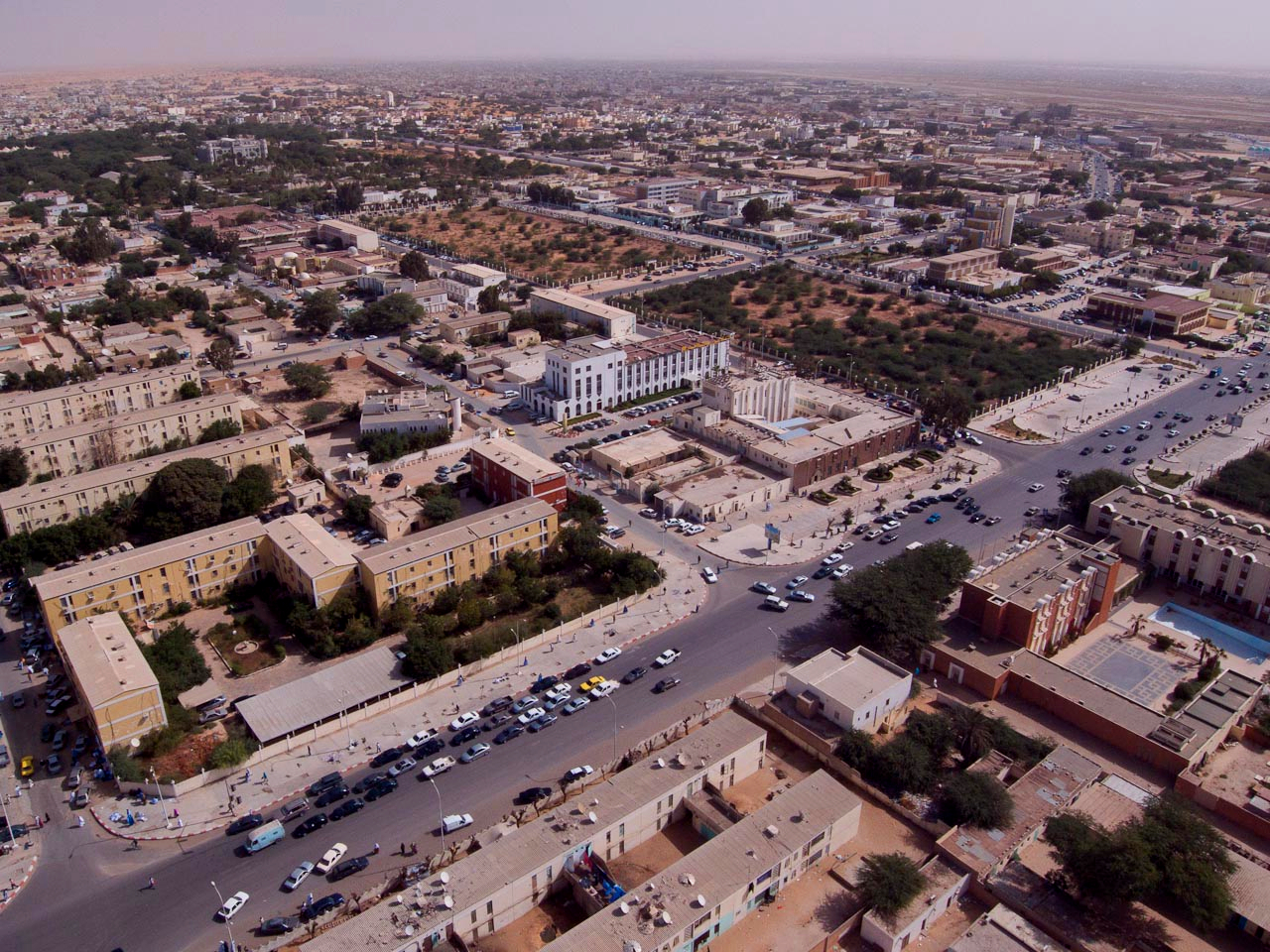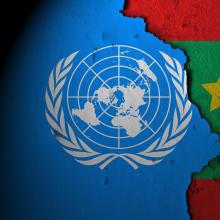July 08, 2021

A partial view of the city, © Laminesall96, licensed under CC BY-SA 4.0
On January 19, 2021, Mauritania was examined before the UN Human Rights Council (HRC) during the country’s third Universal Periodic Review (UPR). The UPR is a peer review mechanism by which UN member states provide recommendations to improve the human rights record of the countries under review. Ahead of the review, MENA Rights Group and the Cadre de concertation des rescapés de Mauritanie (CCR-M) submitted a shadow report, containing a list of recommendations, which were circulated among the reviewing states.
Right to life, liberty and security of the person
Several countries urged Mauritania to abolish the capital punishment. Others, like Australia, recommended the ratification of the Second Optional Protocol to the International Covenant on Civil and Political Rights (OP2-ICCPR), aiming at the abolition of the death penalty.
None of these recommendations were accepted by the authorities, even those calling for a de jure moratorium on the death penalty, the commutation of all death sentences to alternative sentences, and the removal of all references to stoning as a method of execution.
It must be recalled that a large number of offences still carry the death penalty, including some that do not fall within the category of the most serious crimes. In the context of the case of Mohamed Cheikh Ould Mkhaitir, the National Assembly even passed a law making the death penalty mandatory for anyone convicted of “blasphemous speech” and acts deemed “sacrilegious” on April 27, 2018.
As of July 2019, 115 people were being held after being sentenced to death according to official figures.
On the issue of torture, the government accepted three recommendations issued by Denmark, France, and Switzerland urging the authorities to bring its prison and detention conditions into line with the Nelson Mandela Rules, ensure that people in detention are not victims of torture or ill-treatment and combat impunity. On the issue of impunity, the government agreed to “ensure that allegations of torture are subject to independent investigation and that those responsible are brought to justice.”
Freedom of expression
Although press offences have been decriminalised in 2011, Mauritania’s legal framework still contains provisions that restrict activities related to the exercise of freedom of expression, prompting Switzerland to recommend that the Penal Code and the legislation on information and communication be amended in order to bring them in line with article 19 of the International Covenant on Civil and Political Rights (ICCPR). This recommendation was disregarded by the authorities, who also refused to follow through with a recommendation issued by the Netherlands calling on Mauritania to “remove from legislation any identification of blasphemy and apostasy as a crime.”
In the context of the Covid-19 pandemic, the parliament adopted a Law on Combatting Manipulation of Information, which seeks to suppress manipulation of information “especially during periods of elections and during health crises.” In August 2020, the Special Rapporteur on the promotion and protection of freedom of opinion and expression declared that the text allows the government to restrict freedom of expression based on vague criteria and could be subject to arbitrary interpretation.
Freedom of peaceful assembly and association
While the rights to peaceful assembly and association are protected under the Constitution, they are restricted in law and in practice despite timid attempts to ensure that Mauritania’s legislation complies with international standards.
Mauritania accepted nonetheless to “provide a constructive and safe environment for peaceful assembly and freedom of expression to enable civil society, non-governmental organisations and human rights defenders to conduct their activities,” as recommended by New Zealand. The government also accepted to take concrete steps to prevent the arbitrary arrest and detention of human rights defenders.
This commitment is consistent with the adoption in January 2021 of a law abrogating the restrictive 1964 Law on Associations, which formerly required associations to obtain formal permission to operate legally and gave the Ministry of Interior far-reaching powers to refuse such permission on vague grounds such as “anti-national propaganda” or exercising “an unwelcome influence on the minds of the people.” In February 2020, for instance, the authorities had arrested 15 people on the basis of article 8 of Law on Associations for “attending an unauthorised meeting.”
Under the new law, the prior administrative authorisation is no longer necessary; a declaration of creation is now sufficient. Despite this positive development, it is worth noting that the Ministry of Interior can still suspend an association for up to 60 days on the basis of vague grounds such as “engagement in activities that could threaten public order and morals.”
We note that the UN member states paid significantly less attention to the right of peaceful assembly than of freedom of association even though Law No. 73-008 on public meetings still provides that “any public meeting must be the subject of a declaration to the administrative authorities”.
The “Passif humanitaire”
Regarding the issue of the right to truth and the fight against impunity, Belgium was the only country to address the lack of accountability for the crimes committed between the mid-1980s and early 1990s. During this period, commonly referred as “Passif humanitaire”, large sections of the Afro-Mauritanian minority were subjected to serious human rights violations, including summary executions, enforced disappearance and torture.
Belgium thus recommended that Mauritania “takes necessary measures to repeal the law 1993 (No 93-23) on amnesty and create an independent mechanism for justice and reconciliation with the power to conduct investigations into past crimes”. This recommendation was however noted.
The law in question grants amnesty to members of the security forces for all crimes they may have committed between 1989 and 1992. The law thus prevents accountability for perpetrators of human rights violations committed during that period and does not allow access to effective remedies for victims and their families.
Fight against discrimination
The violations committed during the “Passif humanitaire” revealed the exclusion of the Afro-Mauritanian communities in the country. Since then, little progress has been made to tackle the discrimination experienced by Haratine and black African communities. It is encouraging that Mauritania pledged to improve its legal framework applicable to sanctions for all forms of discrimination so as to prevent selective interpretation and manipulation of the applicable law and accepted to “criminalize discrimination in accordance with the International Convention on the Elimination of All Forms of Racial Discrimination.”
The authorities expressed less interest regarding the fight against gender-based discrimination. Spain’s recommendation calling for a modification of the “legislation in order to ensure equality of rights of women and men in relation to transfer of nationality to children, marriage, family relations, access to property and inheritance”, was simply noted.
Next steps
The authorities will have to implement the accepted recommendations ahead of the country’s next review, which will take place in November 2025.






